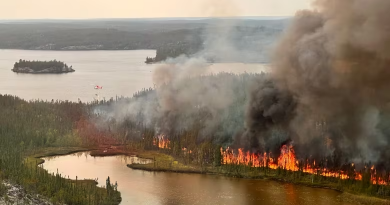Oil company Rosneft applies for new licence to drill along Laptev Sea coast

Oil company Rosneft intends to extend its Arctic drilling program in the remote Gulf of Khatanga.
The state company wants to drill at the Khara-Tumus field, an area located along the coast of peninsula Taymyr, near the Laptev Sea.
The company has already submitted an application to take part in the upcoming license tender, Neftegaz reports. There are no other bidders to the remote Arctic license, the news site informs.
The 1,27 thousand square km big license area is located adjacent to the site where Rosneft last year made a major oil discovery.
According to Rosneft, the Tsentralno-Olginskaya-1 holds at least 80 million tons of oil.
It was the oil company’s only offshore well drilled in 2017 and the operations were conducted from the shore of the nearby peninsula.
A call between the CEO and the President

The well was spud in early April 2017 and Rosneft leader Igor Sechin had President Vladimir Putin on the line directly from the Kremlin in connection with the event.
«Dear Vladimir Vladimirovich, we are located on the peninsula of Khara-Tumus in the Dolgano-Nenets area, north of the 73rd parallel, 250 meters from the coast of the Laptev Sea», Igor Sechin told Putin in the transmission. «Behind my back, through the snow drift you can see the drill tower».
The Gulf of Khatanga is among the least accessible places in the Russian Arctic. Located east of the Taymyr Peninsula by the ice-covered Laptev Sea, the license area is open for regular shipping only two months in the year. The nearest settlement is Khatanga, a town with a population of about 2,500 located about 350 km to the southwest.
Rosneft says it pins high hopes to the development of the Laptev Sea which it believes could hold as much as 9,5 billion tons of geological reserves.
Rosneft over the last year has developed a research and exploitation base in the Khatanga area.
The oil company originally also wanted to obtain a license to the nearby Begichevsky area, but last minute decided to withdraw from the auction because of environmental production regulations in the area, Prime reports.
Related stories from around the North:
Canada: Arctic nickel, not oil, could soon power the world’s cars, Blog by Mia Bennett, Cryopolitics
Finland: U.S. pullout from Paris climate pact condemned by Finnish leaders, Yle News
Germany: Cheap oil from the Arctic? Fake news, says climate economist Kemfert, blog by Irene Quaile, Deutsche Welle
Norway: Dwindling interest in Norway’s Arctic oil raises many questions, The Independent Barents Observer
Russia: 2017, a year of ups and downs for Russian Arctic oil, The Independent Barents Observer
Sweden: Sweden’s climate minister : U.S. withdrawal from Paris sends a bad signal, Radio Sweden
United States: Big questions emerge over $43 billion gas-export deal between Alaska and China, Alaska




Rates of the dollar now increase as there is also price increase in oil. It is a good opportunity for companies such as Rosneft to extend its drilling program. They should also find a way to obtain a license without compromising the area’s environmental production regulation.